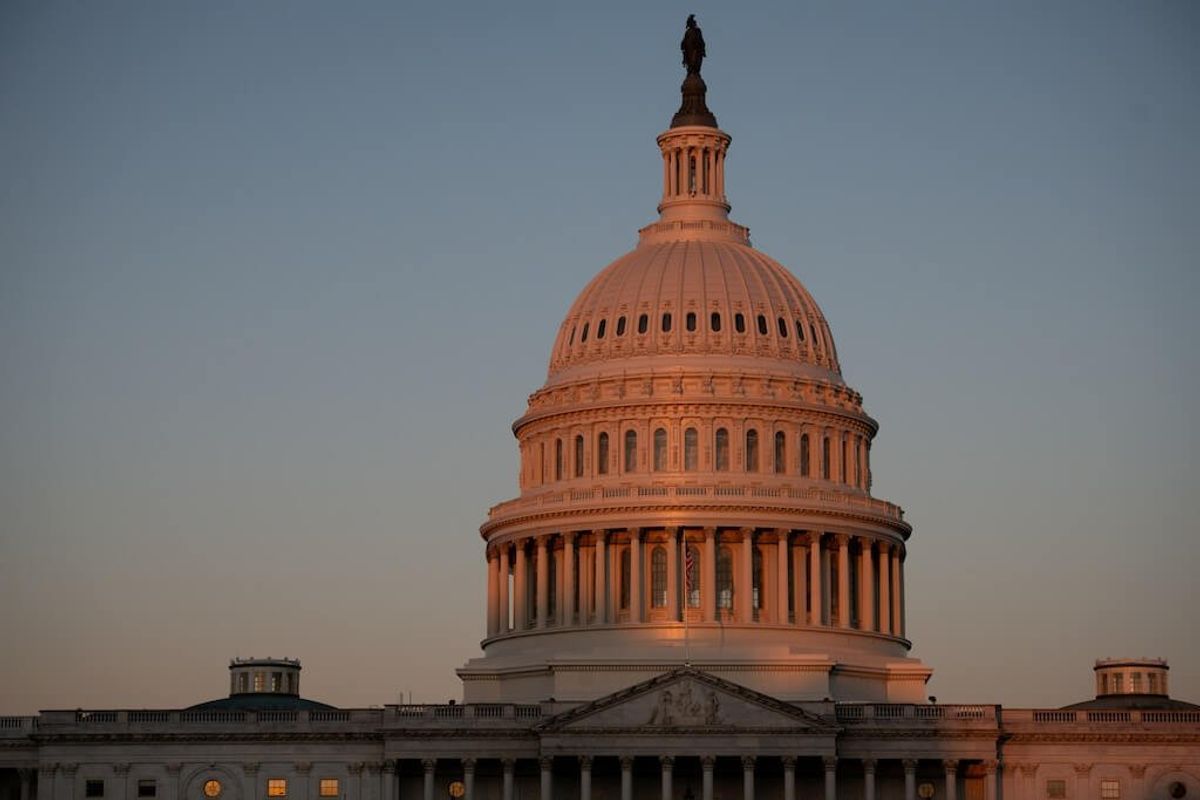
US Senate Races Tighten Ahead of Election
With days left until the U.S. election, Democrats are in a position to win a handful of Senate races that could give them control of the chamber in 2021. No matter who wins the White House, party control of the Senate will be a key factor determining how much work gets done in Washington for the next two years.
Republicans currently have a 53-47 Senate majority. If Democratic presidential candidate Joe Biden wins the presidency, Democrats would need a net pickup of just three Senate seats to assume the majority. If U.S. President Donald Trump is elected to a second term, Democrats would need to gain four Senate seats to have a working majority.
According to the nonpartisan Cook Political Report, seven of the 35 U.S. Senate seats up for reelection November 3 are races that are too close to call. All seven of those seats are currently Republican-held. Additionally, in this cycle Republicans are defending nearly twice as many seats as Democrats, making it more challenging for Republicans to maintain their numbers.
Of the 12 Democrat-held U.S. Senate seats up for reelection, only one is rated by Cook Political Report as leaning Republican – the Alabama race between Senator Doug Jones and his Trump-endorsed Republican challenger Tommy Tuberville. The former football coach has been leading Jones in the polls by double digits since the summer.
Casey Burgat, director of the Legislative Affairs program at the George Washington University Graduate School of Political Management, said polling data showing a shift in Democrats’ favor reflect how many races have been nationalized by Trump’s presence at the top of the ticket.
“If we think of elections as referendums on those incumbents, Republicans are in a really tight spot right now, led by President Trump,” he said. “Candidates are having to work in their seats to distance themselves, to show a streak of independence to say that ‘I'm just not a vote for an unpopular president.’ States where just four years ago he was incredibly popular – being that he brought in some senators to the Senate based on his election tally. So quite a shift in a few short years.”
Here’s where a handful of key races stand:
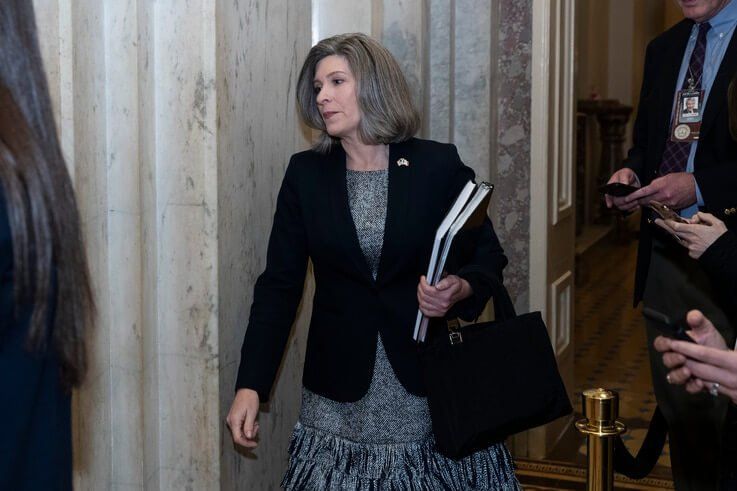
Iowa
Earlier this year, the central state of Iowa looked to be one of the states holding strong for Republicans. But while Trump carried the state by 9 percentage points in 2016, his trade wars have had an impact on its heavily agricultural economy.
Incumbent Republican Senator Joni Ernst supported Trump’s policies and government payments to farmers to supplement the lost income. She has either trailed or tied her Democratic challenger, real estate developer Theresa Greenfield, in almost all polls throughout the year.
Iowa farmer Doug Thompson, a Greenfield supporter, said Ernst’s political fortunes are tied to the president.
“Her success or failure is going to be based on Trump's success or failure in Iowa,” Thompson told VOA. “Agriculture has been devastated even though we've been paid off [received federal aid]. There's still a lot of stress out here – a lot of stress on balance sheets.”
Ernst stumbled in a recent debate answering a question about commodities prices, but farmer and Iowa State Senator Dan Zumbach said she understands agriculture in Iowa.
“President Trump will get our trade settled down so that we can get better prices long term. Joni Ernst is genuine, honest and knowledgeable, and she works hard for our agriculture because she understands it – it's where her roots are.”
North Carolina
Early October was a tumultuous time for both candidates in one of the nation’s most closely watched Senate races: North Carolina. Considered a bellwether for American politics because its demographic makeup reflects a diverse range of areas, ages and ethnicities, North Carolina is fiercely fought over in the presidential election and features a marquee contest between incumbent Republican Senator Thom Tillis and his Democratic challenger, former state senator Cal Cunningham.
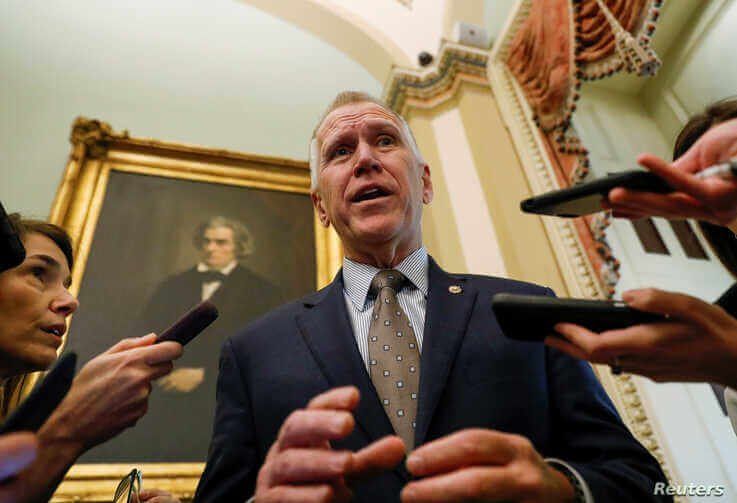
Earlier this month, Tillis was diagnosed with COVID-19 as a part of the outbreak of cases that impacted the White House and the U.S. Congress. While Tillis has since quarantined and recovered, the virus kept him from the campaign trail. At the same time, his opponent was facing questions about revelations he had been texting a woman who was not his wife. Cunningham ended up admitting to an intimate encounter earlier in the summer and apologized publicly to his family. According to a Real Clear Politics average of polls, Cunningham appears not to have been significantly damaged by those events. He leads Tillis by an average of 1.8 percentage points in political surveys.
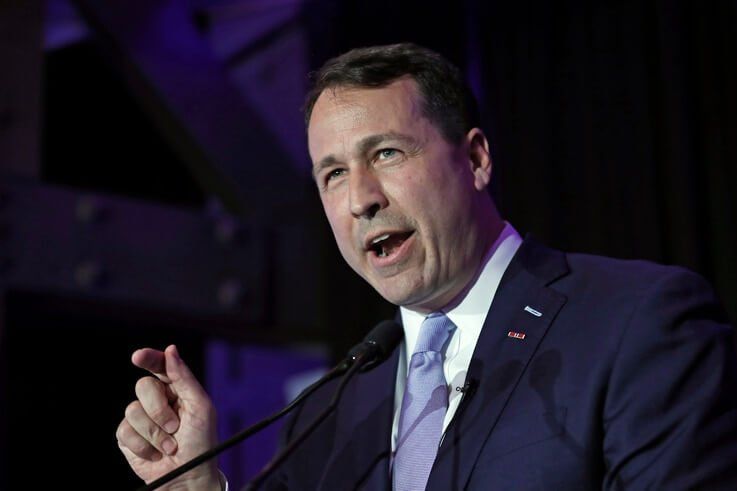
Maine
Facing a tough reelection race, Senator Susan Collins crossed the aisle Monday to vote against the confirmation of Judge Amy Coney Barrett to the U.S. Supreme Court. Collins made it clear she was not voting against Barrett based on her qualifications but on timing.
“I do not think it is fair nor consistent to have a Senate confirmation vote prior to the election,” Collins said in a statement Monday.
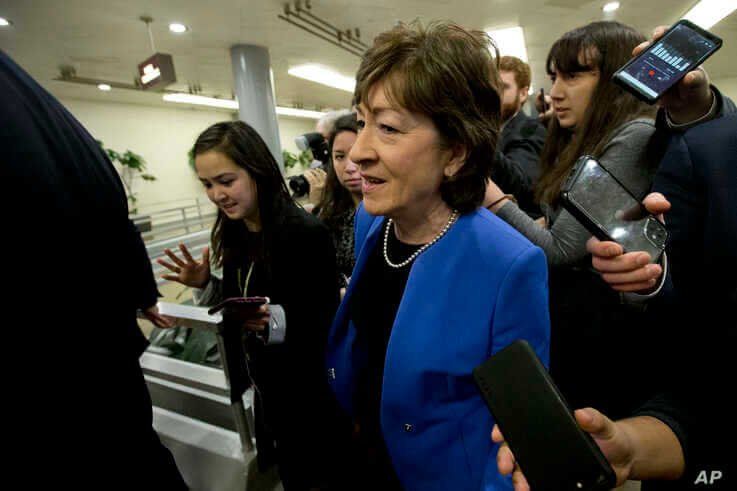
Making decisions in the national spotlight is a familiar role for Collins, who cast a key vote earlier this year in the Senate impeachment trial of Trump. Her opponent, Democratic challenger Sara Gideon, raised funds on the basis of Collins’ vote confirming Supreme Court Justice Brett Kavanaugh in 2018, another decision that led some Maine voters to question whether Collins had maintained her reputation as an independent voice in the U.S. Senate.
“Her vote for Brett Kavanaugh was kind of that breaking point, or at least one of the flashpoints in saying we like when you're independent, but only so far as when you are agreeing with what we do as a state,” said Burgat. “She's been kind of fighting back against that narrative ever since.”
Gideon, a Maine state representative, leads Collins by an average of 4.2 percentage points in a Real Clear Politics average of polls conducted in September and October prior to the Supreme Court vote.
South Carolina
The home state of one of Trump’s strongest Senate defenders is a relatively late entry into the list of close races. Republican Senator Lindsey Graham is leading his Democratic challenger, former South Carolina Democratic party chairman Jaime Harrison by 6 percentage points in the latest New York Times/Siena poll conducted the week of October 9. But a Quinnipiac University poll has shown the two candidates in a tie in multiple polls since July.
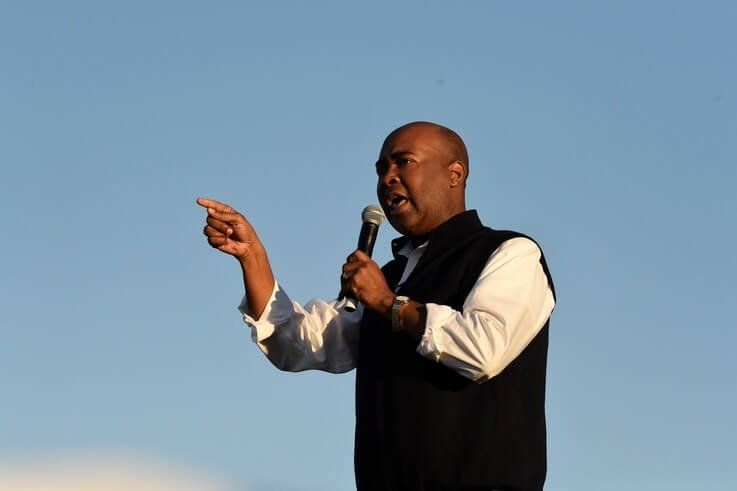
Money is keeping this race competitive. Graham notably complained about Harrison’s fundraising abilities in the confirmation hearings for Supreme Court nominee Barrett last week. Harrison, the former South Carolina Democratic party chairman, has broken the record for the largest three-month fundraising effort ever in a Senate race – a record $57 million.
“His fundraising numbers have been astronomical, but a lot of that money has been coming from outside the state where voters are looking to him as an opportunity for a Democratic pickup,” said Burgat. “So they are funneling money into that race, for a variety of reasons, not least of which is that Lindsey Graham has become kind of the face of Trump-enabling, Trump-supporting and going along with the Trump agenda.”
Harrison has been careful not to focus his campaign on criticism of Trump – part of a balancing act intended to appeal to voters in a state that went for the president over Democratic presidential candidate Hillary Clinton by 14 percentage points in 2016.
Toss-ups
Other toss-up races include both Georgia Senate races. Polls show Republican incumbent U.S. Senator David Perdue leading Democratic challenger Jon Ossoff by 1.5 percentage points. In an open race for Georgia’s other Senate seat, a Democratic political newcomer, the Rev. Raphael Warnock, leads a crowded field by an average of 8.5 percentage points. The Montana Senate race shows encouraging signs for Republican incumbent Senator Steve Daines, who leads his Democratic challenger, Steve Bullock, by 3.3 percentage points.
Kane Farabaugh contributed to this report.
 With US Election a Week Away, Trump and Biden Campaign in Contested StatesNext PostWhere Trump and Biden Differ on Key Issues
With US Election a Week Away, Trump and Biden Campaign in Contested StatesNext PostWhere Trump and Biden Differ on Key Issues







